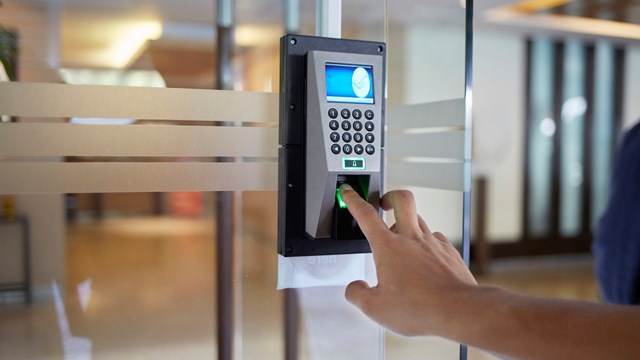
On any given night all around Miami and Fort Lauderdale, tourists swarm the streets, trying to get a good parking spot by the beaches, the bars, the art galleries and the restaurants. At the same time, locals are heading home from work, circling their neighborhoods, also trying to squeeze into the limited parking spots.
In this hub of tourism, parking is a big deal—it’s hard to find it when you need it, and when you do find it, it’s usually very expensive. Given the hot commodity that parking spaces represent in the city, it’s not surprising that many condo buildings operate their own parking facilities, both as an amenity for residents, and as a source of revenue.
Valued Assets
Regardless of whether the facility is under the building or adjacent to it, there’s more to running a parking garage than just painting some stripes on the pavement and watching the cash roll in. Management, allocation of spaces, and facility security and maintenance are just some of the considerations that must be taken into account.
In Miami, unlike many other cities throughout the United States—and unlike many other urban areas in the world—most condominium developments were created with parking lots either in front of the buildings or in attached parking structures, rather than above or below the actual buildings, says Donna DiMaggio Berger, Esq., founding partner with Katzman Garfinkel & Berger, a community association law firm based in Margate. “Occasionally, a condominium or cooperative will have adjacent land to handle overflow parking, but this is the exception,” she says. While a large percentage of the buildings have some form of parking, there are no valid statistics on the specific percentage of condo buildings in the city which own or rent affiliated parking facilities.
Access to these garages can be through a number of different means. One way is through automated gates and card readers. Visitors can gain parking privileges by entering a code into a call system or by phoning the tenant who can then provide a code required for entry, says John Dorsett, a senior vice president at Walker Parking Consultants, which provides parking consulting throughout Southern Florida, including the city of Miami Beach.
Access Control
Another method is to issue and require that vehicles display parking permits—these could be decals or hang-tags. But buildings need to always think about costs. Parking permits requires parking enforcement, which is typically more expensive than an automated facility.
“Therefore, an automated access control system is likely the most practical approach for a residential building,” Dorsett says. Once that’s set up, the building needs to think about who collects the money from the lot users and how that money is turned over to the building.
Typically, Dorsett says, residential parking is access controlled through automated parking gates and card readers. As a condition of possessing a parking facility access card, the card holder is expected to pay a monthly parking lease fee. The parking lease is collected from the building owner or from a commercial parking operator who is working under contract with the building owner.
That’s for rental buildings. In condos, where units are owned, the garage spots are usually owned as well because they are sold in conjunction with the unit—or at an additional cost at the time of the unit’s purchase.
Making matters more complicated is that many residential buildings are turning their own garages or lots into mixed use garages, says Mary Smith, who is also a senior vice president at Walker Parking Consultants. “We often see in a condo association, when they figure out how much money they could make by selling their spots during the day—that they end up selling some spots to the public,” she says.
Mixed use garages, which is a trend in Florida because many of the residents will use their condo lots during the evening hours and overnight while they’re sleeping, but not during the day because they’re working—so it’s a waste of valuable garage spots—typically works best when the residents are segregated into a different entrance or area entirely of the garage from the public, who would pay every time they would enter the garage.
“We see that as more common than simply slowing the residence spaces to be shared,” Smith says.
Other Considerations
Before transforming the garage into a mixed-use space, it must first be determined if there’s enough room for the condo residents and for the public.
There are a few ways to go about doing this.
One of them is called un-bundling, Smith says. “That means charging the user directly for parking, and not including it free in leasing. What they’re doing is giving a two-line item on the monthly statement. That encourages people to understand the cost of parking, and to make wiser choices,” Smith says.
But it also helps the management company know ahead of time if they’ll have a monthly renter who will be bringing a car into the building—or whether they’ll have space for someone from the public to bring in a car—whether that car will be a monthly lease, or at a daily or hourly rate.
“The sustainability regarding parking is changing,” Smith says. “There’s huge momentum that we have to make better use of resources. Having a space sit vacant 10 hours a day while the resident is away from the building, and having visitor spaces sit empty most of the time doesn’t make sense.”
When it comes to maintaining and repairing the common element parking, Florida differs from the rest of the country as well.
These costs are built into the monthly assessments, so unless something out of the ordinary occurs, their costs should stay steady. But if a special parking-related project is needed, a special assessment may be required, Berger says.
“Florida condominiums are required to have reserves for pavement resurfacing unless the membership waives them,” she says. “Owners may be responsible for some parking space costs if the spaces are treated as limited common elements or appurtenances to the units.”
Once they’ve figured out the management side of the parking garage, the nitty-gritty must be dealt with: the allocation of parking spaces. Here’s where personal feelings, anger and management can all coincide when it comes to parking.
“The issue of parking varies from community to community,” Berger says.
Some communities have only unassigned common area parking, which means that residents and guest can park wherever they can find an open spot. This can be good or bad. It means that residents may spend extra time circling around the parking lot, and it also means that the building may have to have more spots than residents to make sure that they have enough for everyone. But it also means that they don’t have to spend the time assigning specific spots—and they don’t have to monitor the garage as closely to make sure that everyone is in the correct space.
“Others have assigned parking, which can be reassigned by the board when needed and/or the owners can assign amongst themselves,” Berger says.
Some communities use a lottery system for prime spots, and other condos and coops have parking spots which are appurtenances to the units, which are deeded to the owners, and these spots cannot be split apart from those units, she says.
“The one thing most Florida communities have in common is not enough parking spots,” Berger says. “This is particularly true for high-rises and other communities which were built in the 50’s and 60’s when most families had one or two cars at most, and not the multiple cars that families have today.”
Other huge issue in Florid—especially with the number of retirees who choose to live there—is the demand for handicapped parking spots combined with the limited number of parking spots in general and the few handicapped spots in each parking area.
Seeing that parking spots are so hard to find, it’s rare that buildings in the Sunshine State would ever sell their parking facilities.
“The sale of common elements would require the approval of 100 percent of the owners and 100 percent of the lien holders of record, which is not likely to ever happen,” Berger says. “You might see a community sell or lease off association-owned property that was used for overflow parking, but again, that is not a likely scenario for Florida.”
On top of that, if a building were to sell off all their parking, the lack of available parking spots to accommodate a potential purchaser’s vehicles and guests could very well impact the purchase decision or renter’s decision negatively, Berger said.
Still, there is some self-selection which occurs when it comes to parking, which buildings do take into consideration.
When Smith’s son was looking for a rental building, he chose a building that didn’t even offer a parking garage. Since a parking garage is—like a gym, a doorman, a roof top deck or a pool—is another amenity that a condo or a co-op could offer—Smith’s son realized that he might be able to spend less on his rental because he wouldn’t require a parking spot.
His girlfriend, however, was willing to pay more because she wanted a home for her car as well. “There’s a self-selection that occurs,” Smith says.
For those who aren’t lucky enough to have the option of parking within their condo—and need it—they can always try to buy or rent a space elsewhere. Long-term parking spots can go for as little as $100-$300 per month, while spaces to buy can range from $25,000-$40,000 depending on the neighborhood.
Danielle Braff is a freelance writer and a frequent contributor to The South Florida Cooperator.






Leave a Comment